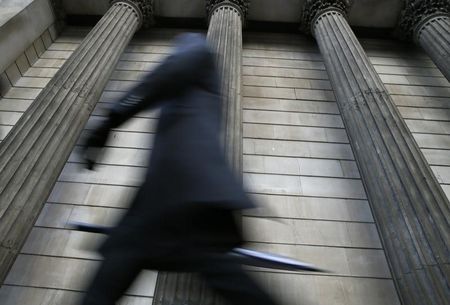By Jamie McGeever LONDON (Reuters) - Senior banking executives would favour criminal prosecutions and jail time if necessary for employees suspected of serious market misconduct, one of Britain's most influential fund managers told Reuters.
Anne Richards, chief investment officer at Aberdeen Asset Management, with more than $500 billion of assets under management, said more must be done to change the culture of an industry whose image has been tarnished by scandal after scandal.
The latest of those is the foreign exchange scandal, which saw six banks fined $4.3 billion by U.S. and UK regulators last week for failing to put in place systems and controls to prevent traders from attempting to rig benchmark exchange rates.
Richards said that her conversations with several banking executives showed them to be acutely aware of the need for deep-rooted and lasting change to ensure such scandals are not repeated.
"There is a systemic thing around how you control a large organization and affect culture. I know how seriously bank chief executives take the question of culture," Richards told the Reuters Investment Summit.
"The good guys would prefer to see a system where the bad guys in their organisation go to jail," she said.
Richards's comments are significant because Aberdeen is Britain's largest independent fund manager by assets and a major shareholder in the country's largest banks since its acquisition of Scottish Widows Investment Partnership.
Legal sources say a number of currency traders will likely be prosecuted in the coming months, mirroring the Libor interest rate-rigging scandal which saw banks fined $6 billion and individuals arrested and charged.
That said, putting traders in jail won't be easy or quick.
Lawyers familiar with the FX investigation say no obvious offence has been committed in the $5.3 trillion-a-day market, by far the world's largest market and one of its least regulated.
The failure to put adequate systems and controls in place and the culture of these banks were not the fault or remit of the traders now being "hung out to dry", according to one lawyer involved in the investigation.
That goes higher up the food chain, but it's up for debate whether senior management and executives will ever face criminal prosecution. There's no precedent that suggests this is about to happen soon.

"White collar crime is extremely difficult to prosecute, especially in finance, due to its complexity," Richards said.
(Reporting by Jamie McGeever)